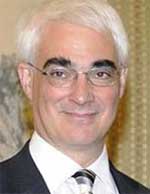UNITED KINGDOM
 |
|
Darling: Favors a collegiate cross-border regulation system. |
Darling’s fingerprints were all over the European Union’s initial response to the crisis, a memorandum of understanding signed by finance ministers last month that will take effect on July 1. The accord ditched an appeal by Italy and Hungary for a pan-European regulator in favor of a system of cross-border supervisory “colleges.”
The emphasis on voluntary cooperation among regulators favored by Darling contrasts with the more extensive regulatory changes in the United States proposed by Treasury secretary Henry Paulson. Darling says he doesn’t want a repeat of the “Enron mistake,” in which the response of regulators had unintended consequences. “It is not a question of more regulation; often it is a question of regulators and management doing their job effectively,” he says.
Meanwhile, the Basel Committee on Banking Supervision issued proposals on April 16 that mirror recommendations of the Financial Stability Forum created by the Group of 7 industrialized nations. A college of supervisors, as envisaged by Darling, will be put in place by the end of 2008 for each of the largest global financial institutions. The supervisory colleges will be tailored to the individual firm and comprise national regulators where the institution operates. Each college will have a chairman and will be in direct contact with bank management on a regular basis. The Basel committee has learned from experience that such an approach is superior to trying to harmonize each country’s distinct regulatory regime.
The committee says the Basle II framework, implemented by a significant number of countries at the beginning of this year, may need to be tinkered with to set clearer standards for complex credit products. Banks will be required to set aside more capital against these products and to more fully disclose off-balance-sheet assets.



